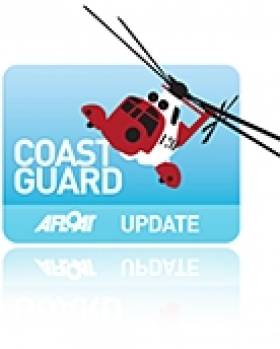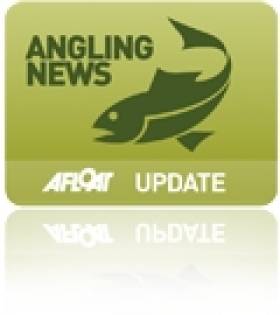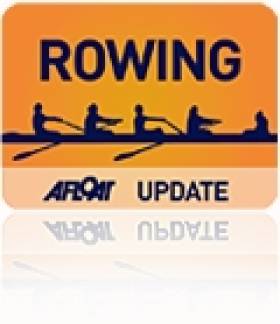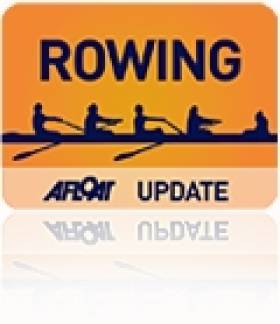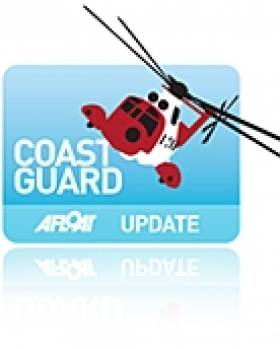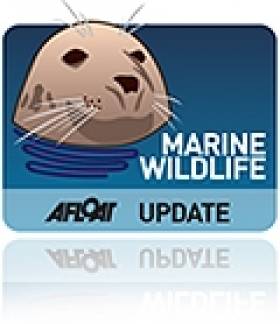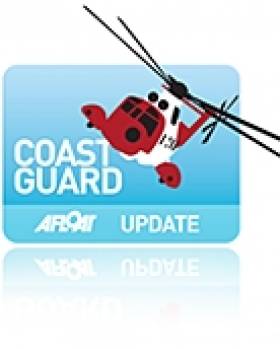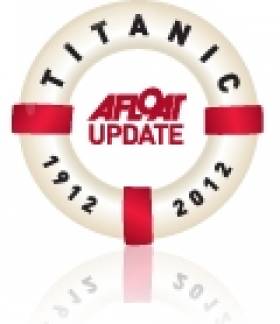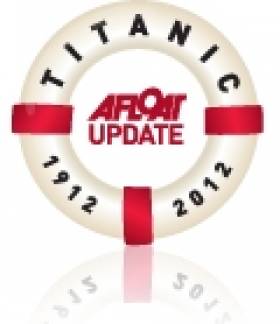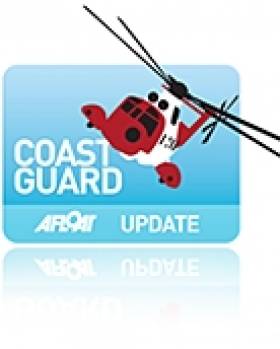Displaying items by tag: Belfast
Concerns Over Staffing Levels At Belfast Coastguard
#Coastguard - The UK's Maritime and Coastguard Agency (MCA) has attempted to assuage concerns over Northern Ireland's only coastguard control centre as a major union accused the service of staffing shifts below safe levels.
As the News Letter reports, this week the Public and Commercial Services Union (PCS) claimed that around 40% of shifts at the coastguard station in Bangor on Belfast Lough have been understaffed for more than a year.
The station at Bregenz House covers all of Northern Ireland and much of Western Scotland - an expanded brief resulting from the streamlining the UK's coastguard network, a plan in which Belfast was narrowly saved from the chop.
The MCA countered the MCA's allegations, claiming that a recent recruitment campaign had filled 28 vacancies for watch officers, and that other centres in the UK carried the load when staff levels were low.
Earlier this year the Belfast rescue co-ordination centre manager Richard Newell resigned from his post some weeks after the station took on extra responsibility with the closure of Clyde coastguard n Scotland last December.
#Angling - Ireland's recreational angling sector generates more than half a billion euro annually, according to the Minister for Natural Resources.
As the Irish Examiner reports, Minister Pat Rabbitte revealed the significant figure in a written response to a Dáil question by Tommy Broughan TD, who requested a breakdown of the number of people participating in all forms of angling in the State.
The minister went on to confirm that the angling industry "sustainably supports more than 10,000 jobs... particularly in the West of Ireland".
Minister Rabbitte's announcement comes ahead of the pending publication of an Inland Fisheries Ireland study on Ireland's angling sector. Afloat.ie will have the latest on that when it appears.
Elsewhere in Ireland, the Belfast Telegraph reports that a man has been found guilty of a number of fisheries offences at Belfast Magistrates' Court.
Derek Ferguson of Larne was fined a total of £225 (€265) for unlicensed angling, unauthorised entry to fisheries and using unlawful angling methods.
# ROWING: The Rowing Ireland talent identification programme run by Nathan Adams in Belfast provided the fastest female and male single scullers at the Lagan Scullers’ Head of the River on Saturday. Up-and-coming talents Gareth McKillen and Bridget Jacques topped the rankings. A Belfast Boat Club/RBAI composite coxed quadruple scull was the fastest crew of the day.
Lagan Sculler’s Head of the River, Belfast, Saturday (Selected Results)
Race One: 1 Bann women’s senior quadruple sculls 12:39.8, 2 Belfast BC women sen quad 12:41.8, 3 RBAI junior single sculls (G McKillen) 13:03.1, 4 BBC/Portora masters double sculls 13:03.8, 5 BBC senior single (Wray) 13:05.9, 6 Lagan sen single (Darby) 13:06.3; 9 Portadown nov single (McKeown) 13:34.1; 15 Bann wom nov coxed quad 14:02.6.
Race Two: BBC/RBAI men sen quad 11:04.5, 2 Lagan Scullers’ men sen quad 11:46.9, 3 Methodist College jun 18A double sculls 12:38.9, 4 Lagan Scullers’ Masters single (Darby) 13:03.7, 5 RBAI jun 16 coxed quad 13:04.7, 6 Coleraine AI double sculls 13:08.1; 8 Portadown inter single (McKeown) 13:30.4; 9 Bann women’s sen double 13:36.0, 15 Bann women’s jun 16 coxed quad 14:16.7.
Race Three: 1 Methodist College jun 18A quad 11:53.8, 2 Coleraine AI jun 18B coxed quad 12:32.8, 3 Methody quad (time only) 12:42.1, 4 BBC/Lagan Scullers’ quad (mixed, time only) 12:54.5, 5 Methody women’s jun 18A quad 13:29.4, 6 Belfast BC women’s sen single (B Jacques) 13:49.6; 8 Bann women’s jun 16 double 14:13.8; 16 BBC women’s nov single (Turner) 14:50.5; 17 Portadown women’s jun 18A quad 14:57.6.
Pre-Race Crash Rules Out Queen's at Lagan Head of the River
# ROWING: A collision before the start between the Queen’s University senior eight and the Portadown intermediate four took both crews out of the reckoning at the second head of the day at Lagan Head of the River in Belfast on Saturday. One of the Portadown crew had to be treated in hospital. In the absence of Queen’s, Neptune’s junior 18 eight ruled the waters: they took pennants as fastest crew; fastest junior crew and fastest junior 18 eight. The Belfast Boat Club/RBAI senior crew was the fastest four and Trinity's top women’s senior eight placed well.
| Lagan Head of the River 2013 - Race 2 – 4200m Saturday 16th February at 1500 |
|---|
| RESULTS by Time – Masters handicap not applied |
| POSITION |
| CREW |
| NUMBER Club Class Cox/Steerer Time % of winning |
| time Comments |
| 1 6 Neptune RC MJ18A 8+ H. Thompson 15:59.2 100.00 |
| 2 5 Portora BC MJ18A 8+ E. McClean 16:02.9 100.39 |
| 3 2 CAIBC MJ18A 8+ M. Bucklee 16:03.7 100.48 |
| 4 8 BBC/RBAIRC MS 4- A. Boreham 16:12.1 101.35 |
| 5 21 QUBBC A MN 8+ P. Ramsey 16:36.1 103.85 |
| 6 11 DULBC A WS 8+ G. Nic Fhionnain 16:43.1 104.58 |
| 7 20 BRC MN 8+ K. McCullagh 16:48.2 105.11 |
| 8 13 BBC MM E 8+ A. Scott 17:06.2 106.99 |
| 9 7 LSC MS 4X- P. Cross 17:10.8 107.46 |
| 10 31 Bann RC MJ16 8+ D. Tang 17:11.1 107.50 |
| 11 12 DULBC B WS 8+ N. Williams 17:12.4 107.63 |
| 12 4 RBAIRC MJ18A 8+ R. Hulatt 17:15.8 107.99 |
| 13 22 QUBBC B MN 8+ S. McGaughey 17:27.6 109.21 |
| 14 10 CAIBC/Portora BC MS 4- S. Archibald 17:32.3 109.71 |
| 15 14 BRC/BBC MM E 8+ S. Mairs 17:38.8 110.38 |
| 16 25 BRC MM C 8+ U. Smart 17:54.7 112.05 |
| 17 15 OCBC/Three Castles RC MM F 8+ J. Henry 18:05.4 113.16 |
| 18 27 QUBLBC WI 1 8+ C. Moorehead 18:09.1 113.54 |
| 19 28 Bann RC WI 1 8+ L. Ferguson 18:24.4 115.15 |
| 20 17 CAIBC MI 1 4+ A. Stewart 18:47.7 117.56 |
| 21 23 LVBC MM F 8+ M. Warnock 18:53.3 118.15 |
| 22 40 QULBC A WN 8+ C. Campbell 19:00.2 118.87 |
| 23 37 Portora BC A WJ18A 8+ Z. Donaldson 19:00.5 118.91 |
| 24 24 Bann RC MM C 8+ E. Earl 19:20.1 120.94 |
| 25 42 DULBC A WN 8+ K. Paterson 19:20.9 121.03 |
| 26 32 CAIBC MJ16 8+ A. Stewart 19:26.5 121.61 |
| 27 29 BRC WI 1 8+ E. Catterall 19:42.1 123.24 |
| 28 30 BBC WM D 8+ H. Wilson 19:46.9 123.74 |
| 29 45 DULBC B WN 8+ N. O'Sullivan 20:34.0 128.66 |
| 30 26 BBC/LSC WS 4X- S. Herron 20:54.1 130.75 |
| 31 46 QULBC C WN 8+ M. Toner 20:55.4 130.89 |
| 32 33 Portora BC MJ16 8+ J. Foster 20:57.0 131.05 |
| 33 44 QULBC B WN 8+ A. Espona-McCartney 21:17.2 133.16 |
| 34 36 Portadown BC MM D 8+ R. Walker 22:01.4 137.76 |
| 35 43 Portora BC WN 8+ C. McClean 22:05.7 138.21 |
| 36 35 QUBLBC WS 4- A. Aitken 22:07.6 138.41 |
| 37 39 BRC WM E 8+ S. Smith 22:38.2 141.60 |
| 38 38 Portora BC B WJ18A 8+ E. Reynolds 22:41.3 141.92 |
| 1 QUBBC MS 8+ A. Margret |
| 9 BRC MS 4- C. Coyle |
| 16 QUBBC MI 1 4+ R. Crowley |
| 18 Portadown BC MI 1 4+ L. Chambers |
| 19 BBC WS 4X- L. Cameron |
| 41 UCDBC WN 8+ V. Turner |
| Lagan Head of the River is organised by Belfast Rowing Club |
| with assistance from Queens University Boat Club, Lagan Scullers Club, RBAI |
| Rowing Club and Belfast Boat Club |
| and the following organisations – |
| Belfast Harbour Commissioners |
| Belfast City Centre Regeneration Directorate |
| Odyssey Arena |
| Police Service of Northern Ireland |
| Powerhouse Sport |
Belfast Coastguard Manager Resigns As Station Takes On Extra Load
#Coastguard - For Argyll in Scotland reports that Richard Newell has resigned from his post as rescue co-ordination centre manager at Belfast Coastguard.
The news comes some weeks after the command base took on extra responsibility with the permanent closure of the Clyde coastguard station last month.
Britain's Maritime and Coastguard Agency (MCA) confirmed to the website that Newell resigned from his position around two weeks ago - and that he has assured the agency that his decision has no connection with the streamlining plans being undertaken across Britain's coastguard network.
However, For Argyll alleges Newell had made it known locally that "if he considered the future [of the coastguard service] was becoming dangerous, then he would go".
As previously reported on Afloat.ie, campaigners for the Clyde coastguard station in western Scotland were taken aback by the early transfer of helicopter dispatches to Belfast and Stornoway in November, ahead of the base's permanent closure on 18 December last.
More than 30 jobs were lost with the scrapping of the Clyde control centre at Greenock, with much of its role now being taken up by the Belfast command centre at Bangor across the North Channel - a change to the original plan for Scottish stations to share the load till 2015.
Black Swan Bedazzles Birdwatchers in Belfast
#BlackSwan - A rare black swan has been spotted in the wild making its home in Northern Ireland, as BBC News reports.
The species, which is native to Australia, has never before been seen in the wild on this island. But a female black swan has recently been seen at the Waterworks public park in north Belfast, astounding local bird enthusiasts.
The bird is presumed to be an escapee from a private waterfowl collection, but as local 'twitcher' Aidan Crean enthused, she's a more than welcome addition to Belfast's urban wildlife.
"We have coots, moor hen, mallards, about 100 black headed gulls that have come in from Belfast Lough, a couple of mute swans and in the middle of it all an amazing black swan, pure black with a red bill," he said.
BBC News has much more on the story HERE.
'Early Closure' of Clyde Coastguard Surprises Campaigners
#COASTGUARD - Campaigners for the Clyde coastguard station in western Scotland have suffered a blow with the news that all calls are now being routed to Stornoway and Belfast as of last night.
BBC News reports on a document leaked to the Coastguard SOS Campaign, which outlines that while the Clyde station itself is scheduled to close on 18 December, control of aerials (ie helicopter dispatches) to the stations at Stornoway and Belfast was on schedule to be completed by yesterday evening (Friday 16 November).
Campaigner Dennis O'Connor said this move meant that "Clyde will cease to exist operationally" from last night.
He also described it as a "direct challenge" to concerns from the Transport Select Committee in Westminster that the closure programme had started early with the closure of Forth coastguard in September "despite assurances that the replacement system of operation would be fully tested before any closures took place".
However, a spokesperson for the Maritime and Coastguard Agency said that the handover period "has been planned for some time. All the staff have been informed well in advance."
As previously reported on Afloat.ie, the scrapping of the Clyde control centre at Greenock will see the loss of 31 jobs, with much of its role being taken up by the Belfast coastguard at Bangor across the North Channel - a change to the original plan for Scottish stations to share the load till 2015.
Titanic Quarter Developer Makes a Loss
#TITANIC - Titanic Island, the company at the head of the consortium developing Belfast's Titanic Quarter, made a pre-tax loss of £20 million (€25 million) in 2011, as BBC News reports.
Much of this has been attributed to a one-off payment of £13 million (€16.25 million) to the charitable trust that owns the new Titanic Belfast visitor centre on the shores of Belfast Lough.
The company's directors described the opening of the tourism hot-spot as the "tipping point" for the development and that "the pieces are in place" for the Titanic Quarter to become one of Ireland's most important commercial hubs.
Meanwhile, Titanic Island is in discussions with Ulster Bank about restructuring its loan support, which the firm's auditors say is essential if the development is to continue.
BBC News has more on the story HERE.
Titanic Launch Ticket Tells The Story Of Its Legacy
#TITANIC - In the latest edition of his history of Ireland in 100 objects in The Irish Times, Fintan O'Toole examines the legacy of an admission ticket to the launch of the Titanic in Belfast on 31 May 1911.
On that day, he writes, "a huge crowd gathered at the Harland and Woolf shipyard at Queen's Island in Belfast Lough for the launch of the great transatlantic liner Titanic. Among them were many of the workers who had built it. This admission ticket belonged to David Moneypenny, a ship's painter who worked on the first-class quarters."
He adds: "For him, for his colleagues, for Belfast and Protestant Ulster, this was a moment of extraordinary accomplishment. Titanic was at the leading edge of 20th century technology."
O'Toole positions the Titanic as a symbol of Belfast's remarkable growth in the late 19th century to become Ireland's largest and most productive city, largely built upon the "kind of globally significant industry" that Dublin and southern Ireland were sorely lacking.
But while marking the gulf of separation between these two Irelands - the largely Protestant industrial powerhouse and the Catholic land "of romantic peasants" - Titanic also represented two very different versions of Ireland in popular culture: one of the hundreds of post-Famine emigrants who died when the ship sank on 15 April 1912, and that of the start of what O'Toole describes as "an almost apocalyptic sense of threat" to the Ulster Protestant identity, the reverberations of which are still felt today.
The Irish Times has more on the story HERE.
Fishermen Rescued after Vessel Sinks off County Down Coast
#coastguard – Two fishermen have been rescued after the fishing vessel Snowdonia sank approximately 12 miles east of Kilkeel Harbour on the County Down coast.
Belfast Coastguard received a call from the fishing vessel Tribute reporting that they had recovered two fishermen from the water. The RNLI lifeboat from Kilkeel and the Irish Coast Guard Search and Rescue helicopter were sent to the scene. The crew of Kilkeel Inshore Lifeboat were quickly on scene and provided first aid until the arrival of the Irish Helicopter.
The two crew were airlifted to Daisy Hill Hospital, Newry where they are currently being assessed.
Gary Young, Watch Manager Belfast Coastguard, said: "This incident has again proved the importance of wearing a lifejacket and having it maintained to a high standard.
"I would like to pass on my thanks to the professionalism of the lifeboat and helicopter crews."
Additional reporting from RNLI:
The volunteer lifeboat crew with Kilkeel RNLI were today involved with a local fishing vessel and the Irish Coast Guard helicopter from Dublin in the rescue of two fishermen after the boat they were in sank off the Down coast. The men were ten miles from Kilkeel when the boat started to take in water and the alarm was raised.
Kilkeel RNLI received the call for assistance at 10.30am this morning (Tuesday 23 October 2012) and immediately launched and made their way to the scene. When the lifeboat crew arrived the vessel had sank and the two men had been taken onboard another fishing vessel, which was in the vicinity and able to respond to the callout. The fishermen had been in the water for a few minutes before they were pulled to safety and were feeling the effects of the freezing cold water.
A lifeboat crewmember from Kilkeel RNLI was transferred onto the vessel where they administered first aid and oxygen to the freezing men. On the arrival of the Dublin Coast Guard helicopter the two men were airlifted onboard and taken to Daisy Hill Hospital in Newry.
Commenting on the callout Roy Teggerty, Kilkeel RNLI Lifeboat Operations Manager said, "The two fishermen were extremely lucky. Thanks to the quick action of the passing fishing vessel along with the Kilkeel RNLI lifeboat and Dublin Coast Guard the men were recovered from the water very quickly and received first aid. I wish the men a full recovery from their ordeal.


























